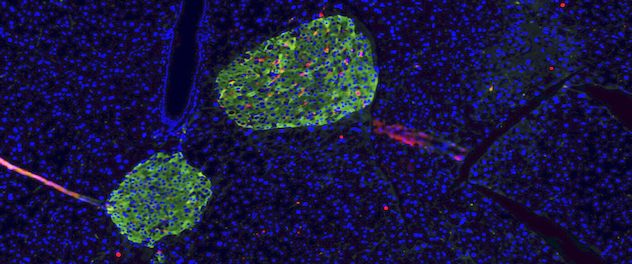 Discovering new therapeutics for metabolic disorders
Discovering new therapeutics for metabolic disorders
Studying the epigenetic and transcriptional mechanisms of diabetes pathogenesis is the primary research focus of Dr. Wei's lab. The lab's team seeks to identify novel targets and therapeutic approaches to prevent diabetes and other metabolic disorders.
Overview
Research in the Epigenomics of Metabolic Diseases Laboratory led by Zong Wei, Ph.D., focuses on investigating the fundamental mechanisms of diabetes, obesity and inflammation, and identifying therapeutic targets in metabolic diseases. Using both human tissues and mouse models, the laboratory:
- Studies the epigenomic regulation of cellular dysfunction in diabetes and metabolic diseases.
- Identifies novel therapeutic targets in obesity and inflammation.
- Explores the fundamental mechanisms of transcription and chromatin biology.
To address these issues, the team employs a variety of tools, including genetic mouse models, ex vivo physiology, computational tools, human organoid models, functional genomics, single-cell multi-omics and proteomics.
Research areas the lab is currently exploring include:
- Hormone-dependent epigenomic dynamics in diabetes and innate immunity.
- Novel paracrine regulators in metabolic diseases and chronic inflammation.
- Cross talk between pancreatic islets and their microenvironment.
- Epigenetic modulation of glucocorticoid signaling in circadian function and inflammation.
- Using multi-omic platforms to interrogate epigenetic heterogeneity and its link to functional genome-wide association study variants.